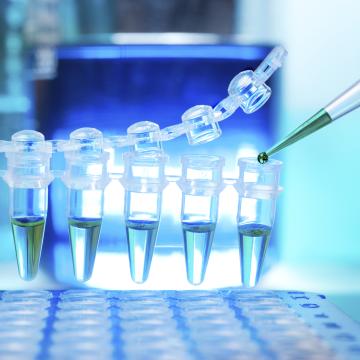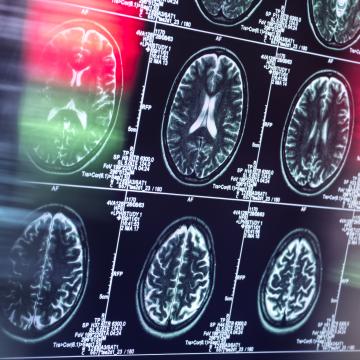Small Intestine Cancer
Getting small intestine cancer means abnormal cells in that section of your gastrointestinal tract are growing and dividing at a rapid pace — so fast that cells in your immune system that fight disease cannot keep up. The five types of small intestine cancer differ depending on the type of cell affected.

Small intestine cancers are rare. About 12,000 people will get this type of cancer in the United States this year, according to the American Cancer Society.
At City of Hope, we offer several screening methods for small intestine cancer, including blood chemistry studies, an endoscopic biopsy, an upper endoscopy, a CT scan and a PET/CT scan.
Small intestine cancer is quite rare, making it even more essential to find a team that has seen this type of cancer and is acquainted with the best and most individualized treatments.
Getting treated for small intestine cancer at City of Hope means you are steps away from labs where new treatments are being developed every day.
When you come to City of Hope, you automatically gain access to an unparalleled array of support services to help you and your loved ones take each step during and after small intestine cancer treatment.
For over a decade, U.S. News & World Report has named City of Hope one of the top cancer hospitals in America. We are a recognized leader in small intestine cancer research and treatment. City of Hope's small intestine cancer program offers you access to exceptional, coordinated care and makes you the focus of a team of world-class doctors and scientists.
Our Small Intestine Cancer Program Highlights
- State-of-the-art screenings and diagnostic tools, including endoscopy, CT scans and genetic testing
- Minimally invasive, robotically assisted surgery for fewer complications and faster recovery
- Surgical specialists dedicated to preserving the quality of life
- Ultraprecise radiation therapy to target tumors and protect healthy tissue
- Targeted drugs and drug combinations for greater effectiveness and fewer side effects
- Pioneering drug research and clinical trials

City of Hope is one of the few facilities designated a comprehensive cancer center by the National Cancer Institute.

Our developments in the areas of breakthrough cancer drugs, bone marrow transplants and CAR T cell therapy are recognized internationally.

Our leadership in research and innovation continually enhances our ability to provide novel and differentiated approaches to cancer care.

Afsaneh Barzi, M.D., Ph.D., is a medical oncologist at City of Hope.

Gagandeep Brar, M.D. is an assistant clinical professor in the Department of Medical Oncology & Therapeutics Research.

Dani Castillo,M.D. is an assistant clinical professor in the Department of Medical Oncology & Therapeutics Research.

Yi-Jen Chen, M.D., Ph.D., is a radiation oncologist specializing in gastrointestinal cancers, gynecological cancers and esophageal cancers.


